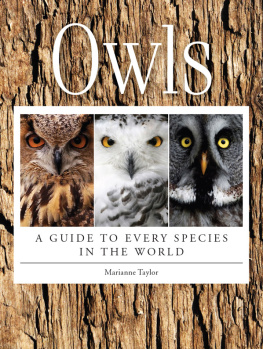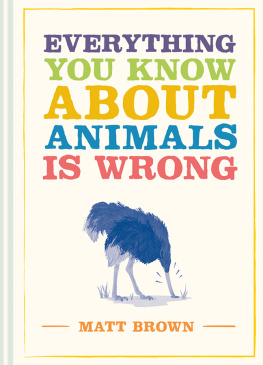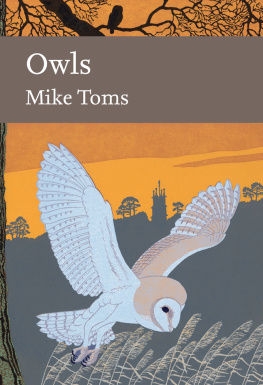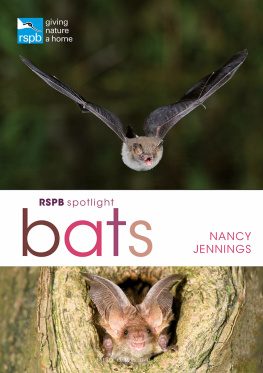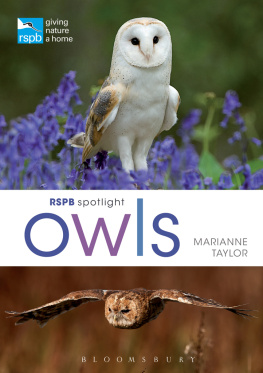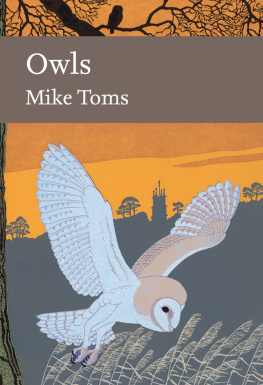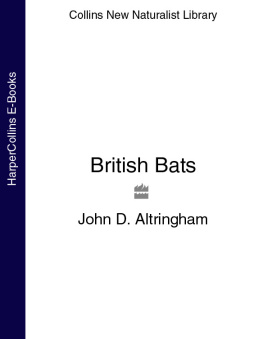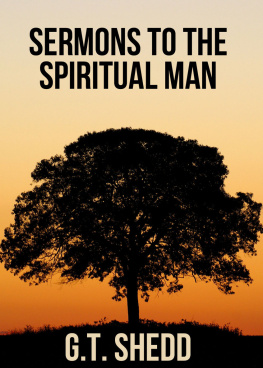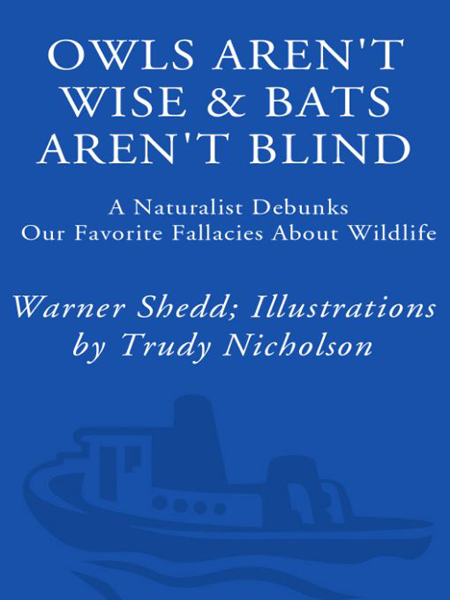
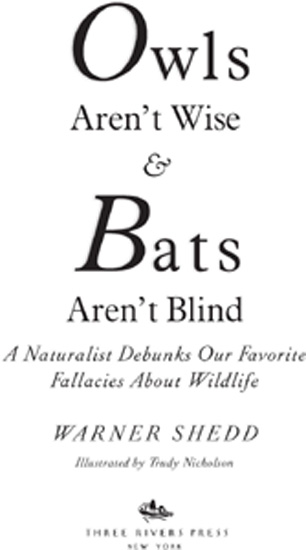
Table of Contents
To Edie, my wife and most trusted critic,and to the rest of my family for theircontinued interest in and support of this project
Acknowledgments
It would take an enormously long list to thank individually the many, many wildlife biologists and researchers who so generously shared their knowledge and time with me; therefore, a general expression of my gratitude will have to suffice. These busy individuals were unfailingly courteous, amazingly patient, and often delightfully friendly and encouraging while answering what must sometimes have seemed like a deluge of questions. These people are the true wildlife experts, and I salute them.
Special thanks go to my literary agent, Linda Roghaar. With seemingly infinite patience, she guided me through the process of creating this book, beginning with her invaluable advice and assistance in preparing a book proposal that she was subsequently able to market. Always good-humored and willing to answer my questions or help me in other ways too numerous to mention, Linda is the epitome of what I believe a good literary agent should be.
Trudy Nicholson, who illustrated this book, also deserves profound thanks. Her wonderful artistic skill, her almost obsessive desire for accuracy in even the smallest details, and her ability to work long hours, day after day, in order to meet deadlines were an enormous asset.
Thanks are also due to my editor, Patricia Gift, and her assistant, Kristen Wolfe. They, too, were very patient with my lack of knowledge about the production of a book by a large publishing house and did a great deal to make the process run more smoothly.
Introduction
THE PATH THAT LED TO THIS BOOK BEGAN WITH AN INSTINCTIVE FASCINATION WITH WILDLIFE, EVIDENT EVEN WHEN I WAS VERY YOUNG. While I was growing up, my parents, my two sisters, and I lived on my maternal grandparents dairy farm in Vermonts Champlain Valley. My grandfather, who was a business school graduate and machinist before he became a farmer, was quite artistic, and my favorite object in our home was his large, framed pencil drawing of a family of gray squirrels in a huge oak tree. I used to gaze at it for long periods of time, as it was a remarkably good portrait for an untrained artist. To my immense and continuing pleasure, it now graces the wall of my office, hanging just beneath the long-barreled muzzle-loader that was my grandfathers squirrel gun when he was a boy.
A large drawer in my grandfathers desk contained a very nice set of antlers from a whitetail buck that he had shot many years before. These also fascinated me, and from time to time I would ask to look at them. Then one obliging adult or another would open the drawer, take them out, and let me handle them for a minute or two before putting them away again.
One day when I was five or six, my grandfather announced that the next day was May 1 (the traditional opening day of the trout season in those days), and that he was going to take me fishing. I was immensely excited, of course, since I had never before been fishing.
The next day Grandpa and I set out for the creek that formed one boundary of our farm, a half-mile or more from the house. Across the meadow we went, down the lane, through pastures and meadows, and eventually beneath the tall, lovely pines that grew in a broad swath of woods between pasture and creek. Finally we reached our destinationa very large boulder beneath which the current swirled and carved a nice little pool in its shady recesses.
The creek, where it bordered our farm, was too far downstream to harbor trout. No doubt it had at some distant time, when Native Americans hunted and fished along its banks. Now, however, it flowed through enough miles of open land to allow the sun to heat the water beyond the range tolerated by trout. There was still good trout fishing not many miles upstream, I later learned, but not where we were about to fish.
All of this made not the slightest difference to me. The pool beneath the rock contained numerous chub and dacemembers of the minnow tribe that eagerly grabbed the worms with which my grandfather helped me bait my hook. Each fish was a new adventure, and I loved every moment of the experience.
At the same time, I came under the spell of the creek itself. True, its waters werent cold enough for trout, those most demanding aristocrats of the fish world, but it ran clean and clear. The sight and sound of the moving water as it sparkled, rushed, gurgled, and murmured its way over and around the numerous rocks in its path captivated me utterlya captivation that continues to this day. Like the Mole in The Wind in the Willows, I had entered into the joy of running water!
Our return home was triumphant. I was praised to the skies for the fine catch of dace and chub that I brought home. These were duly cleaned, dredged in flour, sauted in butter, and presented for my delectation. I thought that I had never eaten anything finer!
School followeda one-room school a quarter-mile from our home. There was one teacher for eight grades, so of necessity we students spent much time working on our own. Once our lessons were done, we could either ask for drawing paper and amuse ourselves drawing or coloring, or we could read. Sometimes I chose to draw pictures, and these were invariably of birds and animals. Most of the time, however, I read.
The school library, if it could be called that, was minuscule, consisting of a little revolving stand about three feet high that contained a handful of volumes. I did manage, at an early age, to acquire a nodding acquaintance with such things as Greek and Norse mythology from its scanty resources. My greatest pleasure, however, came from the bookmobile that stopped by every two or three weeks. From its manifold treasures I almost always selected books about wildlife. I especially recall several of Ernest Thompson Setons books, as well as a little volume written by a naturalist, whose name Im not sure of now, that contained color plates of several of the animals discussed in it. I was particularly delighted by the authors reference to the skunk, at one point, as Sir Mephitis.
Our home library was also very limited, but I sometimes received books about wildlife for Christmas or birthdays. One, titled Horns and Antlers as I recall, educated me considerably about deer, elk, antelope, mountain goats, and the like. We also had a very out-of-date encyclopedia that further enlightened me about the natural world.
At age nine I developed a strong urge to hunt; after some very careful checking, I was deemed sufficiently responsible to go a field with a little single-shot .22 rifle in quest of the wary gray squirrels that inhabited the wood-lands on and near the farm. I was indeed responsible enough to hunt at that age, for I was almost obsessive about safety when I had a gun in my hand.
As my stalking and shooting skills improved, I brought home numerous squirrels for the pot. Actually, we didnt put them into regular stews; instead, they were usually sauted or fricasseed with sour cream to make a delicious gravy to accompany the sweet, tender meat.
At about that time, I read a book by Gene Stratton PorterI believe it was called Moths of the Limberlostthat greatly expanded my interests in the natural world. Soon I was collecting our native giant silkworm mothscecropia, luna, Io, and their kin. Over the next three or four years I managed to amass a fairly creditable display of these gorgeous but seldom seen creatures.
Next page


